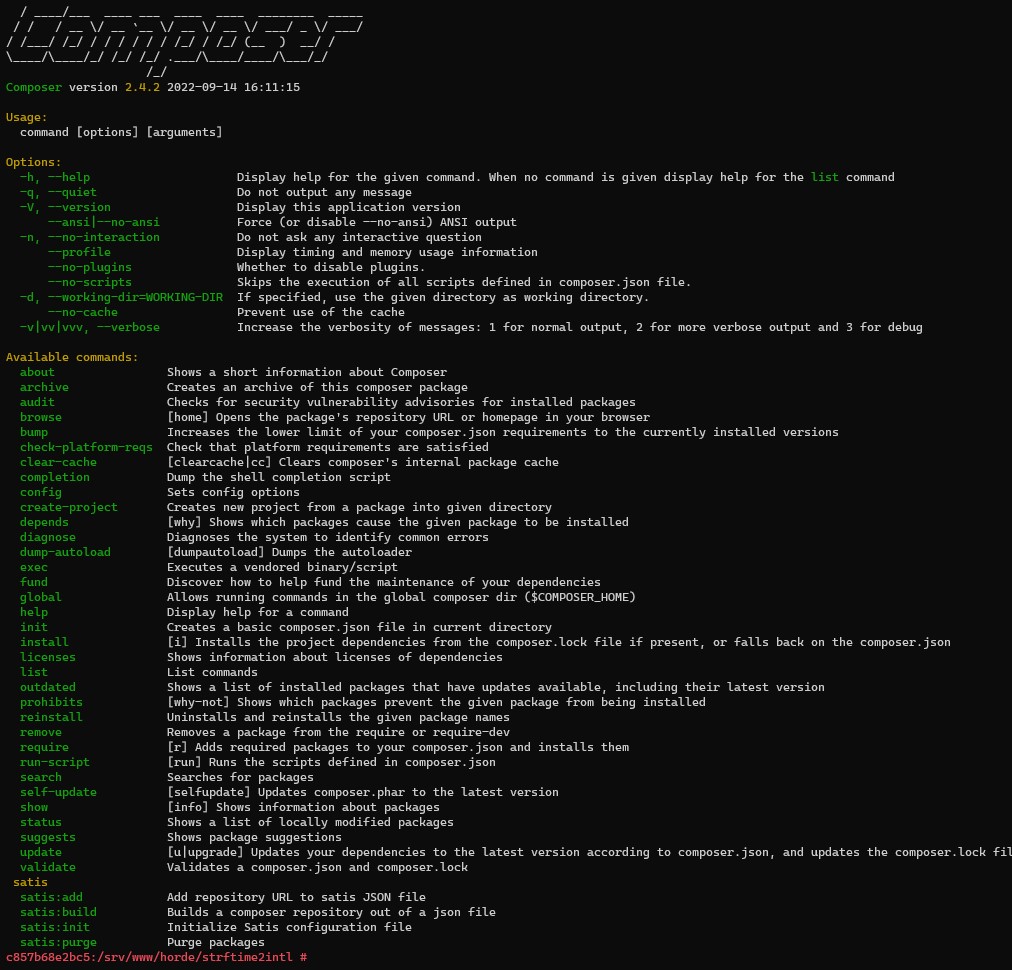Satis is the lightweight, static repository generator for the composer package manager. It enables admins to provide PHP software packages inside airgapped CIs, OS packaging environments and restricted data centers.
Back in August I added a plugin mode to satis to make it work as a regular composer plugin. While working on it, I also fixed some preexisting issues found by static analysis and made it compatible with the recent composer versions 2.3 and 2.4.
This week, the upstream maintainers merged my contribution. I feel a bit satis-fied 😉
Why make it a plugin?
When looking under the hood, it is easy to see that satis always has been some awkward kind of plugin or extension. It literally sits on top of an internal copy of composer. It hooks into its internals in not quite transparent ways, it uses its class and interface organs for its own vital functions. You might call it a parasite that attaches to composer’s body for its own needs. There are downsides to this approach. The first is that you need a private copy of composer. The second is that any refactoring of composer internals likely breaks satis compatibility. That happened some time ago when composer 2.3 and 2.4 were released and not for the first time. Composer has a maturing plugin API with nice, well-defined integration points. It provides some means to overload or amend core functionality but it also provides messaging between core and plugins. I only did the bare minimum work to make satis hook into the plugin API and not break the standalone mode. When installed as a dependency, package resolution will ensure that the API versions used by satis matches the API versions provided by the underlying composer.
I don’t quite understand… What is the benefit?
By itself, this change provides little benefit. It is a feature enabling feature.
- Satis can be further refactored to make compatibility bread less often
- Satis can send and receive events from composer or other composer plugins. This enables running satis as part off a custom command. Think passing unit and integration tests of a project and then conditionally updating the staging or canary package repository.
- Satis’ schema could be amended to make a project’s root package also function as an instruction to build a repository of all dependencies with almost zero configuration. Add this to a workflow or add a collaborator plugin that handles the necessary push/release and you have a powerful tool for CI and developer laptop alike.
But as I went along, I also re-aligned satis with the latest breaking changes inside composer 2.3/2.4. This will benefit users who do not care about the whole plugin story.
What’s next?
With satis 3.0-dev merging this initial change, the next steps are obvious, but not urgent.
Making the new plugin mode play nice with the latest composer was already easier than fixing the standalone mode. Satis still has an internal, now updated dependency copy of composer which is only run in standalone mode.
Standalone mode should be refactored to be just a thin wrapper around composer calling into its satis plugin. Keeping intrusion into composer internals to the bare minimum to hide the builtin commands and re-brand it as satis, this would make breakage on upcoming updates much less likely. Eventually, we can maybe stop carrying around a source code copy of composer at all.
Finally, there is reaping the benefits. I want to leverage composer/satis functionality inside the horde/components tool. Rolling out new versions of horde stuff could be so much easier.
